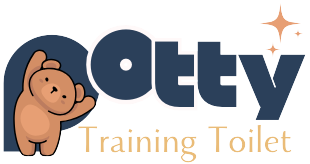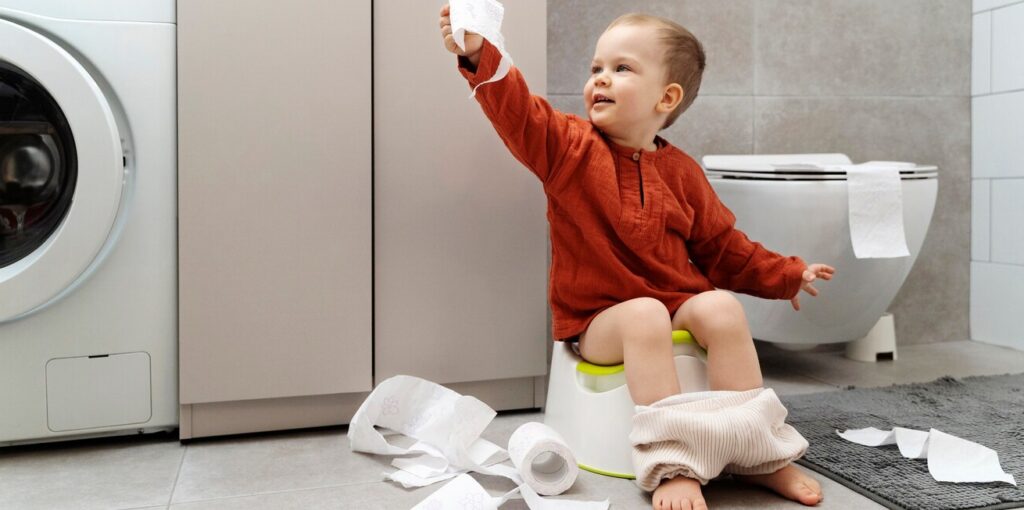Blog Post
How Long Should It Take My Child to Potty Train?
Have you ever wondered why your neighbor’s kid potty trained in three days while your child seems to take weeks…or even months?
If you’re feeling anxious, frustrated, or worried that something’s wrong, you’re not alone.
As a parenting blogger with over 10 years of experience writing about toddler milestones, I can promise you: potty training isn’t a race. Every child learns differently, and that’s perfectly okay.
Let’s break down what’s normal, what to expect, and how you can support your little one during this big step toward independence.
How Long Does Potty Training Take on Average?
Most children take between 3 to 6 months to be fully potty trained during the day.
But here’s the thing:
- Some kids might show readiness and train in a few days (especially with intensive methods like the 3-day potty training approach).
- Others need weeks or months to consistently stay dry.
Night-time potty training often takes longer. Many kids stay in pull-ups or night-time diapers for months or even years after they’re daytime trained. This is totally normal and depends on their brain-bladder development during sleep.
What Age Do Most Children Start Potty Training?
According to the American Academy of Pediatrics:
- 18-24 months: Some children show signs of readiness, but few are fully trained this early.
- 2-3 years old: The most common window to begin potty training with success.
- 3 years+: If your child isn’t potty trained by 3.5-4 years, consult your pediatrician to rule out underlying issues.
Read more: Best Age to Start Potty Training
What Affects How Long Potty Training Takes?
1. Readiness Signs
Potty training is faster when your child shows signs such as:
-
Staying dry for 2+ hours
-
Showing interest in the toilet
-
Disliking wet or dirty diapers
-
Understanding simple instructions
-
Telling you before or after they go
If you start before these signs appear, potty training may drag on longer and cause frustration for both of you.
2. Approach Used
-
Child-led approach: Gradual, can take months, focusing on no pressure.
-
3-day method: Intensive, requires dedication and consistency but works for many kids.
-
Toilet training boot camps: Short and structured, effective if your child is ready.
3. Temperament and Personality
Some kids are easy-going and go with the flow. Others resist change or feel anxious about using the toilet.
For example, my middle child refused to poop on the potty for almost 6 months, despite being fully pee trained within a week. It wasn’t about ability – it was about comfort and control.
4. Potty Training Regression
Even after successful training, toddlers may regress due to:
-
Stress (new sibling, moving homes)
-
Illness
-
Major routine changes
Stay patient. Regressions are normal and usually temporary.
Potty Training Tips to Make It Faster (and Less Stressful)
- Wait for readiness – don’t compare your child to others.
- Dress them in easy clothing – skip overalls and tight leggings.
- Use a potty they like – some prefer mini potties; others want a seat on the big toilet.
- Celebrate successes – stickers, claps, happy dances.
- Avoid punishments for accidents – it increases anxiety and delays training.
- Stay consistent – mixed messages slow down progress.
FAQs
1. Can you potty train in 3 days?
Some kids do well with the 3-day potty training method if they’re developmentally ready. It’s intense but effective for certain families.
2. Why does my child pee on the potty but refuse to poop?
This is common. Pooping feels scarier for many kids. Stay calm, encourage sitting after meals, and never force them.
3. Is it normal for potty training to take months?
Yes. While some kids train quickly, many need weeks or months to fully master it.
4. How can I handle potty training regression?
Go back to basics: gentle reminders, praise for successes, and no punishments for accidents.
Conclusion
So, how long should it take to potty train your child?
Anywhere from a few days to several months – and both are perfectly normal.
Focus on readiness, patience, and consistency rather than the calendar. Your child will get there, and soon, diapers will be a distant memory.

